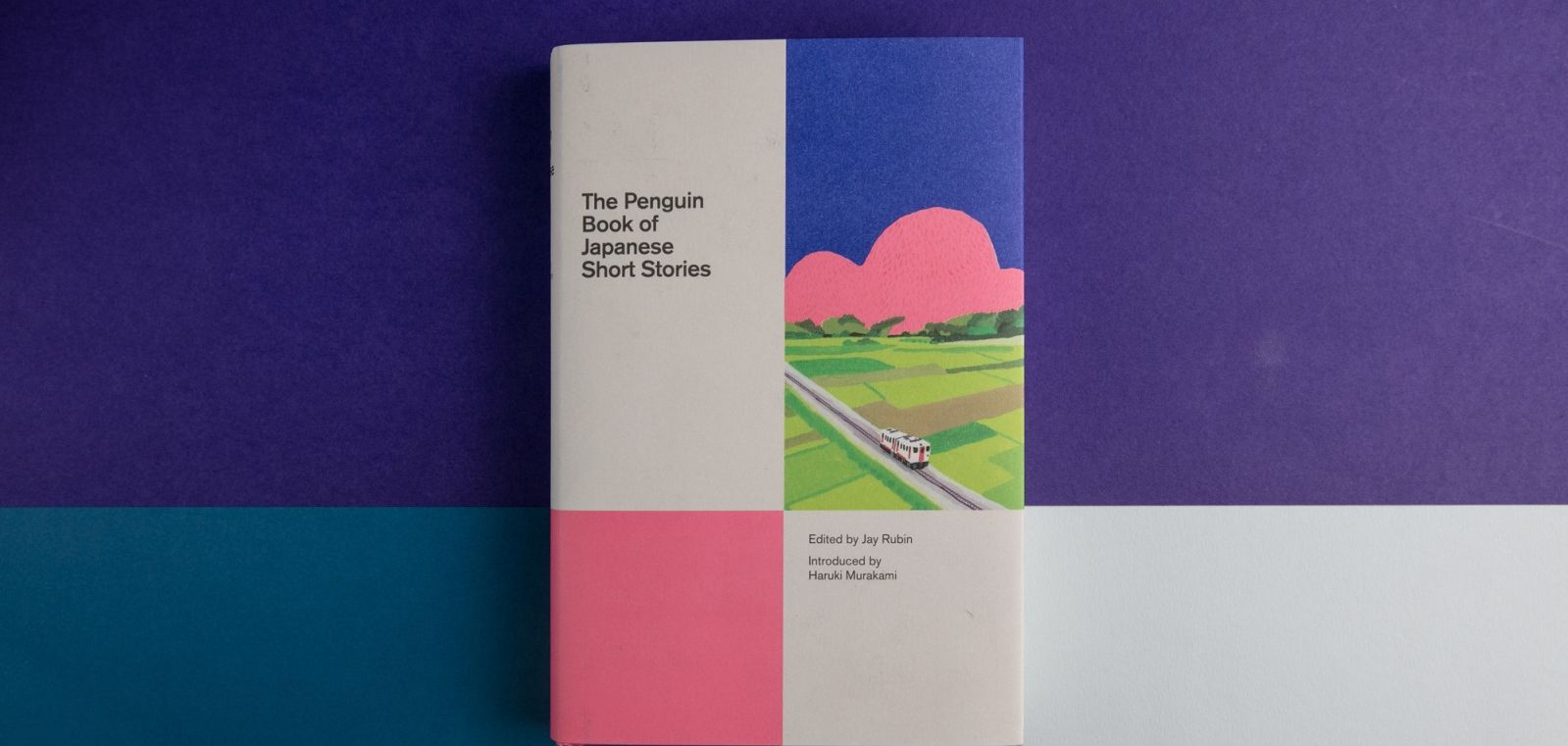The delightful intoxication of love, I can only believe, exists to give us a state of the sadness to come after parting…
This remarkable anthology of thirty-five Japanese short stories is replete with dazzling, eccentric and memorable works ranging from the 19th century masters to turn-of-the-century contemporaries. It serves as a wonderful showcase of lesser-known yet distinct Japanese voices rendered in highly readable English. But it gives a sweeping crash-course into modern Japanese literature, albeit by way of a detour. The early 20th century giants such as Natsume Sōseki, Ryūnosuke Akutagawa, and Jun'ichirō Tanizaki all make an appearance, but don’t expect the mainstay classics found in university required reading lists. The spotlight of this collection belongs to the authors lesser-known in the West, as well as young writers, such as Yuten Sawanishi.
Under the astute editorship of Jay Rubin (well known for his prolific translations of Haruki Murakami’s work), this collection eschews comprehensiveness for emotional effect and novelty. It isn’t a selection of Greatest Hits from Japan’s literary canon so much as a showcase of some unique and innovative voices who are steadily making their way across the Pacific. One author featured, Banana Yoshimoto, has been steadily gathering critical acclaim in the Anglophone world thanks to her deeply resonant and individualistic style.
Accompanied by an introduction by Murakami himself, there is little else in the way of critical baggage for the reader. A new or casual reader can comfortably dive in without much background knowledge of Japanese culture or history; the few obscured references are accompanied by concise endnotes. From the outset, this isn’t an academic text with exegetical and critical minutiae, but instead ‘for general readers who are looking for a good read when they open the book and don’t much care how Japanese literature may have developed in the period covered.’ Indeed, Japanese literature has developed in dramatic and important trajectories, but all this is relatively invisible to the reader. The stories here will most likely be read in blissful isolation, where their own literary and aesthetic strengths will carry the day. For the most part, the translations are lucid, crisp and highly readable. Sections are rarely prosaic and most of the dialogue is recognisably colloquial. All these stories have been published in English in other collections, and the Further Reading thankfully provides from where the pieces in the current anthology have been collected.
Folk tales mingle next to harrowing accounts of Hiroshima and the Fukushima disaster. Wistful stories of love and memory counterpoint venomous, absurdist satires. There’s a wonderful feeling that with each story you pick up next, you have no idea what it will offer. Some stories are truly shocking, others simply bewildering. The great virtue of having so many stories from so many different authors is that readers are bound to find an author he or she will enjoy.
But unlike other short story anthologies, the pieces here are not organised by author or date of publication, but by theme. Some of these themes touch on genre, but most relate to certain particularities of Japan. The first few stories cover the fraught period of Japan’s post-Meiji modernisation, a period where millennia of cultural, social and artistic values were deeply challenged by the arrival of the West. But distinctly Japanese themes feature prominently such as the legacies of its samurai warrior culture, or the rich influence of kaidan (Japanese folk tradition) stories on Minako Ohba’s The Smile of a Mountain Witch and Fumiko Enchi’s A Bond for Two Lifetimes. Some stories draw from the imported sinews of Western literature - Kōji Uno’s Closet LLB takes its influence from Ivan Goncharov’s Oblomov - while others are on the post-modern cutting edge, such as Murakami’s ephemerally impressionistic The 1962/1983 Girl from Ipanema.
Amidst this mélange of styles and themes, there are some incredible works that display a deft mastery over one of the most difficult forms of fiction. Some highlights of the collection:
- Filling Up with Sugar by Yuten Sawanishi: a brilliant and bizarre story of a woman’s relationship with her dying mother, told in a darkly comedic way in the vein of David Cronenberg.
- Same as Always by Yuya Sato: the final and perhaps the most shocking story in the collection. Set in the aftermath of the Fukushima nuclear meltdown, it follows a mother who revels in the disaster for a bleakly perverse reason.
- Remaining Flowers by Kenji Nakagami: a subversive tale about eroticism, masculinity, and social alienation.
- Flames by Yūko Tsushima: a subtle and understated account of a single mother’s looming depression, punctuated by unusual recurring deaths in her town.
- Behind the Prison by Kafū Nagai: a lush eulogy of a romanticised Europe yet also a lament on the rigidness of traditional Japanese culture which the narrator is forced to return to.
- Patriotism by Yukio Mishima: a visceral story of a Japanese lieutenant’s last days after the failure of an attempted military coup d’état. Trapped between the loyalty to his comrades, or to his Emperor, he chooses to commit hara-kiri – a painful death ritual meant as the ultimate symbol of honour and devotion.
- Bee Honey by Banana Yoshimoto: an almost Proustian sketch of a divorced Japanese woman languishing in her memories while wandering Buenos Aires.
- Hiroshima, City of Doom by Yōko Ōta: written in a calm yet arresting voice, this story details the moments of the fatal bombing with uncanny detail – details you could only get from someone who was actually there.
It’s hard to complain when more well-known Japanese stories such as Rashomon or Grave of the Fireflies are conspicuously absent when we’re offered such a range of interesting work, especially since the main goal of this anthology is to highlight the weird, wonderful and overlooked. We’re left with a suite of dazzling tales that show the verve and inventiveness of over a century of Japanese literature.
The Penguin Book of Japanese Short Stories is available at the UNSW Bookshop.




